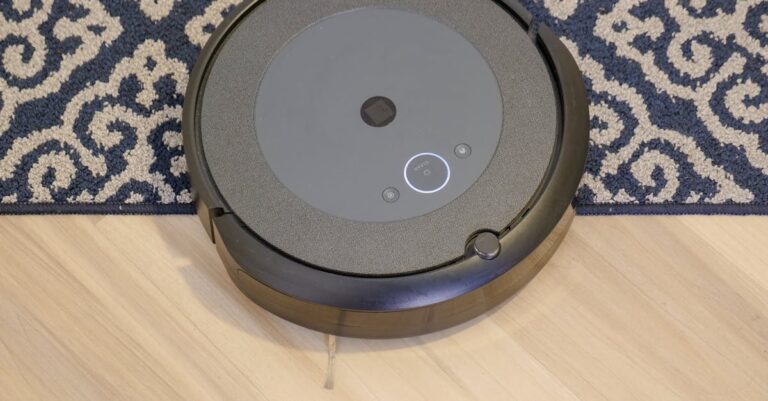Imagine waking up to the gentle hum of your coffee maker, the blinds automatically lifting to let in the morning sun, and your favorite playlist serenading you as you step out of bed. Welcome to the future of smart homes, where technology doesn’t just assist—it anticipates.
Table of Contents
ToggleOverview of Smart Homes Technology
Smart home technology revolutionizes everyday living through automation and connectivity. Integrated devices, like smart speakers and security systems, enhance efficiency and safety within homes. Sensors use artificial intelligence to detect environmental changes, adjusting lighting and climate automatically.
Homeowners control these systems remotely via apps or voice commands. Features such as energy management help reduce costs, with smart thermostats optimizing energy use based on occupancy patterns. Furthermore, advanced security technologies include smart locks and cameras, providing real-time monitoring and alerts.
Connectivity remains essential for smart homes. A reliable Wi-Fi network connects devices, enabling seamless communication among appliances. Voice assistants like Amazon Alexa or Google Assistant centralize control, allowing users to manage multiple devices effortlessly.
Incorporating sustainability, smart home technology promotes eco-friendly living. Smart irrigation systems conserve water, and energy-efficient appliances significantly lower consumption. Homeowners find that automating these features fosters a greener lifestyle, aligning with modern environmental goals.
Developments in smart home technology continue to propel advancements and innovation. Emerging trends include enhanced interoperability, enabling devices from different manufacturers to work together effectively. As technology evolves, customization options expand, allowing homeowners to create truly personalized experiences.
Notably, future smart homes may integrate more with city infrastructure for improved efficiency. Technologies like 5G networks will enhance connectivity, enabling instant communication between devices. Additionally, advancements in machine learning and data analytics will further personalize user experiences, anticipating needs before they arise.
Benefits of Smart Homes Technology
Smart home technology brings various benefits that enhance safety, efficiency, and quality of life. These advancements provide homeowners with significant advantages.
Enhanced Security Features
Enhanced security features form a core component of smart homes. Smart locks allow homeowners to control access remotely, providing peace of mind. Cameras equipped with motion detection send real-time notifications to users when unusual activity occurs. Intruder alerts can trigger automated responses, such as lighting up the exterior. Advanced security systems can integrate with emergency services for immediate action when necessary. This layered approach makes homes more secure and reduces the risk of break-ins.
Energy Efficiency and Sustainability
Energy efficiency and sustainability represent key advantages of smart homes. Intelligent appliances optimize energy consumption, reducing electricity bills. Smart thermostats adjust heating and cooling automatically based on occupancy and preferences. By implementing smart irrigation systems, homeowners can minimize water waste in gardening. Data-driven insights enhance efficiency by tracking usage patterns, leading to informed decisions on resource management. Overall, these features promote eco-friendly living and contribute to a sustainable future.
Key Technologies Driving Smart Homes
Smart homes rely on advanced technologies that enhance both convenience and efficiency. These technologies work in unison to create connected living environments.
Internet of Things (IoT)
IoT plays a critical role in the smart home ecosystem. Devices connected through the internet communicate seamlessly, allowing homeowners to control appliances, lighting, and security systems remotely. Smart thermostats adjust temperatures based on user preferences, while connected sensors monitor everything from air quality to energy consumption. Home networks enable real-time monitoring, providing instant updates via mobile apps. As more devices integrate IoT functionalities, the ability to manage home environments expands further, enhancing daily convenience.
Artificial Intelligence (AI)
AI significantly enhances smart home technology by learning user behaviors and preferences. Machine learning algorithms analyze usage patterns, optimizing device performance and energy consumption. Voice assistants equipped with AI can answer queries, send reminders, and manage schedules, providing personalized support. AI-driven systems anticipate user needs, automating tasks like meal preparation and climate control. Enhanced security features powered by AI detect unusual activities and send alerts, ensuring safety. Overall, AI transforms how homeowners interact with their environments, making lives easier and more efficient.
Future Trends in Smart Homes Technology
Smart home technology is evolving rapidly. Future trends indicate significant advancements in various aspects of smart living.
Integration with Renewable Energy
Integration with renewable energy sources becomes a priority in future smart homes. Solar panels and wind energy systems can work together with smart home technology, providing homeowners with sustainable energy options. Energy storage solutions, such as home batteries, enhance energy independence and efficiency. Homeowners can monitor energy production and usage through smart apps, allowing for real-time adjustments. Additionally, smart systems can optimize energy consumption based on availability, reducing reliance on traditional power grids. These developments contribute to both cost savings and environmental sustainability.
Advanced Home Automation Systems
Advanced home automation systems promise increased convenience and efficiency. Systems that facilitate seamless integration among devices allow homeowners to set personalized automation routines. Smart hubs simplify management by connecting multiple devices through a single interface. Voice-activated controls enhance user experience, enabling hands-free operation of lighting, heating, and security systems. Customized scenarios, such as “movie night” or “away mode,” can set the ambiance and security measures automatically. Furthermore, these sophisticated systems utilize machine learning to adapt to user habits, optimizing performance and energy use over time. Overall, these enhancements provide a more tailored and efficient living environment.
The future of smart home technology promises to redefine how people live and interact with their environments. With advancements in automation and connectivity homeowners can expect enhanced convenience and efficiency in their daily routines. The integration of AI and IoT will lead to smarter devices that not only respond to commands but also anticipate needs.
As technology continues to evolve so too will the possibilities for creating safer and more sustainable living spaces. By embracing these innovations individuals can enjoy a seamless blend of comfort and security while contributing to a greener planet. The smart home revolution is just beginning and its potential is limitless.



